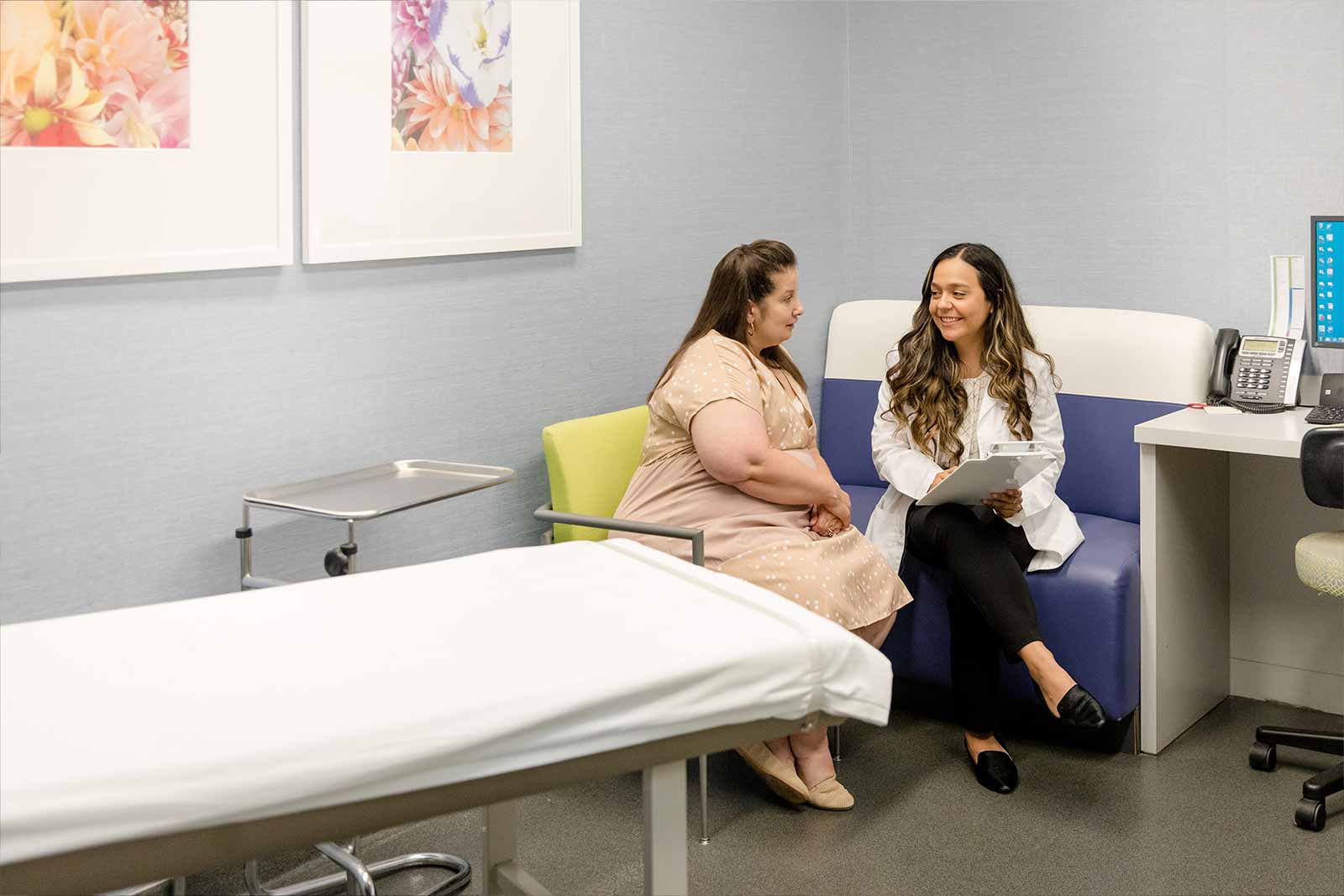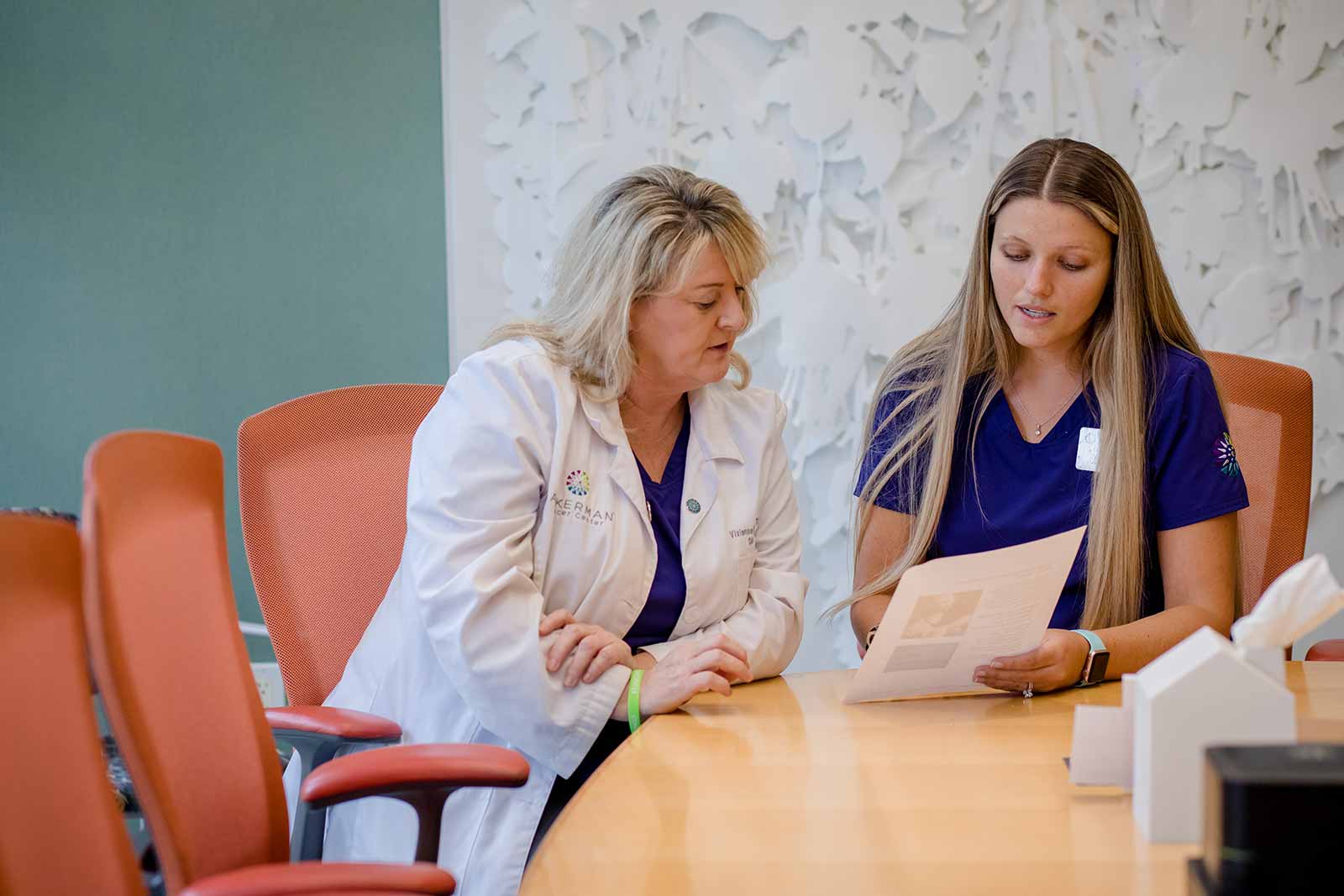Cervical and Ovarian Cancer
Regular health screenings are essential to maintaining your gynecological health. Talk with your doctor about what screenings are right for you based on family history and other possible risk factors.
Women should always address any changes with their health care provider if they notice any of these symptoms:
- abnormal bleeding or discharge.
- pelvic pain or pressure.
- longer or heavier menstrual periods.
- bloating.
- abdominal pressure.

Cervical Cancer
Cervical cancer is the 4th most common cancer in women worldwide. Each year in Florida, over 1,000 women are diagnosed with cervical cancer and approximately 300 will die from the disease.
Prevention and Screening
The Papanicolaou test (Pap test) and Human Papillomavirus (HPV) test may help prevent cervical cancer or detect it during early stages. If you have low income or without health insurance, you may be able to get free or low-cost screening through the Florida Department of Health’s Breast and Cervical Cancer Early Detection Program.
- All women: Know the benefits, limitations, and potential harms linked to cervical cancer screening and be aware of the risk factors linked to cervical cancer.
- Women ages 21 to 29: Schedule regular Pap tests and follow your provider’s screening recommendations based on those results.
- Women ages 30 to 65: Based on your testing history, you may only need a Pap test and/or HPV test every three to five years.
- Women over 65: Based on your testing history, you may no longer need additional screenings.
Cervical cancer is highly curable when found and treated early. Almost all cervical cancers are caused by HPV. Check with your physician to determine if you are a candidate for the HPV vaccine.

Ovarian Cancer
Ovarian cancer, which forms in the ovaries or fallopian tubes, is the second most common gynecologic cancer in the United States. In 2019, there were 1,597 new cases of ovarian cancer diagnosed in Florida, with half being among women 63 years old and older.
Several factors can affect a woman’s risk of ovarian cancer, including:
- Family history of ovarian cancer, BRCA1 or BRCA2 genes.
- Advanced age.
- Being overweight.
Talk to your health care provider about what screening tests may be appropriate.
